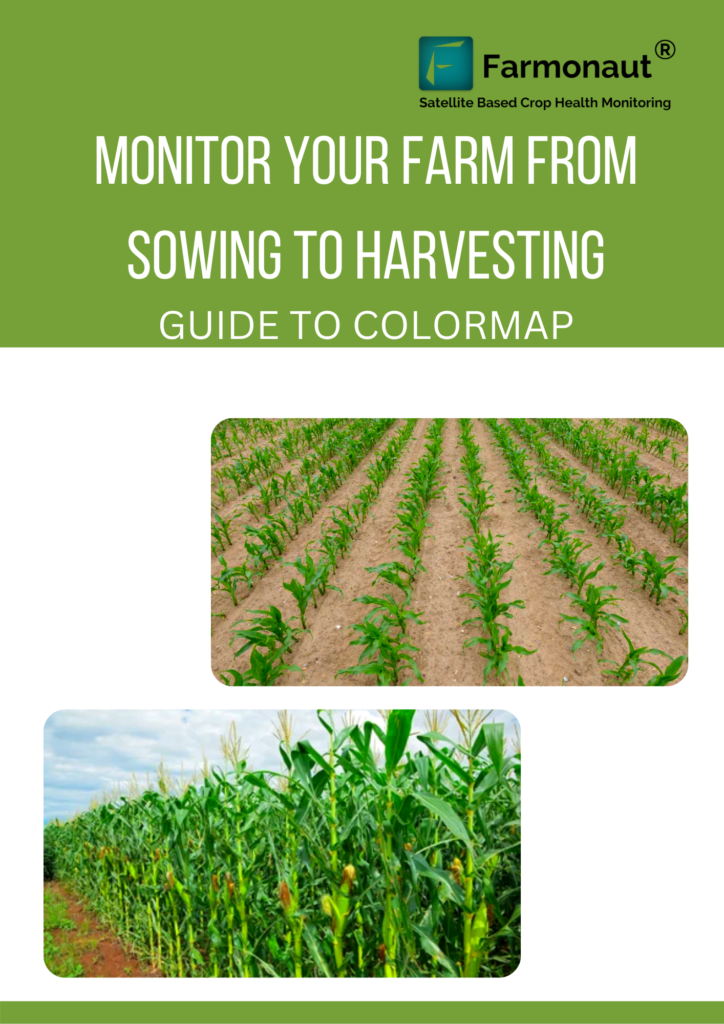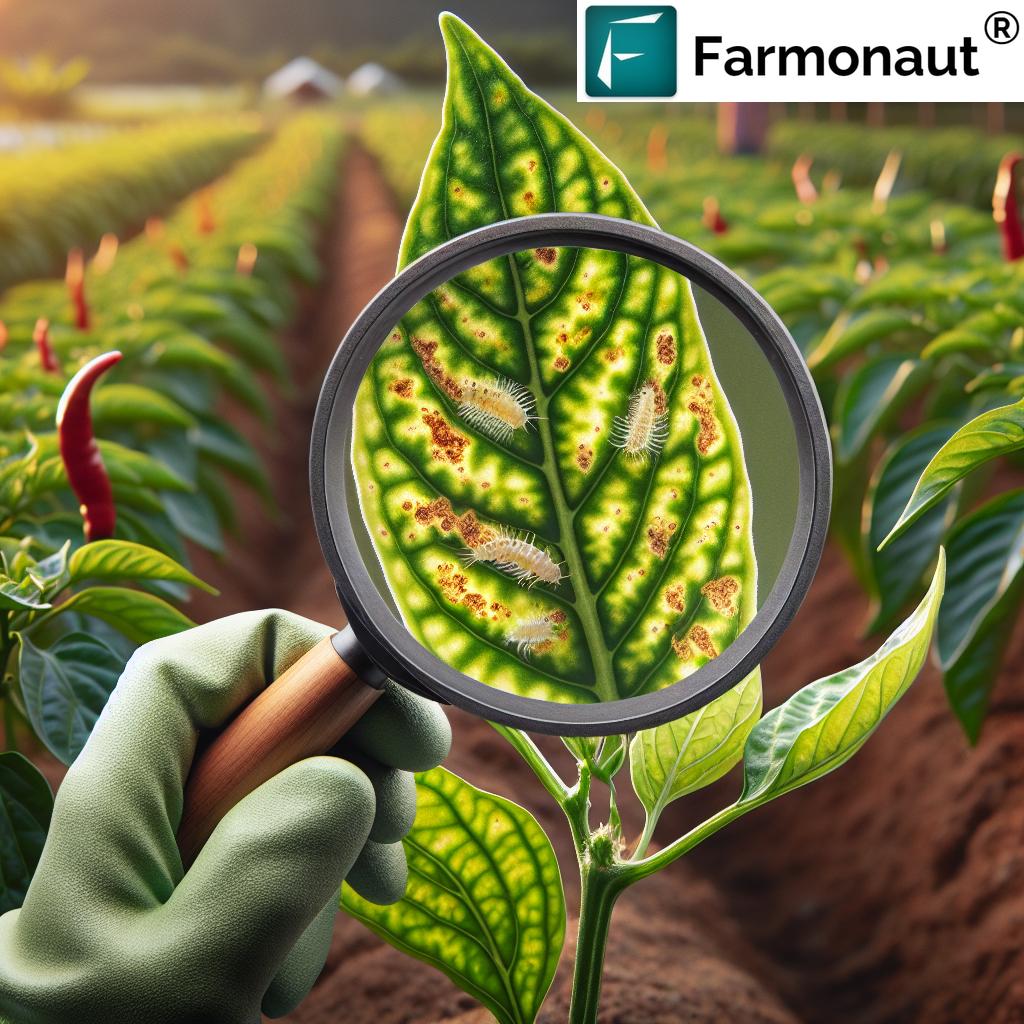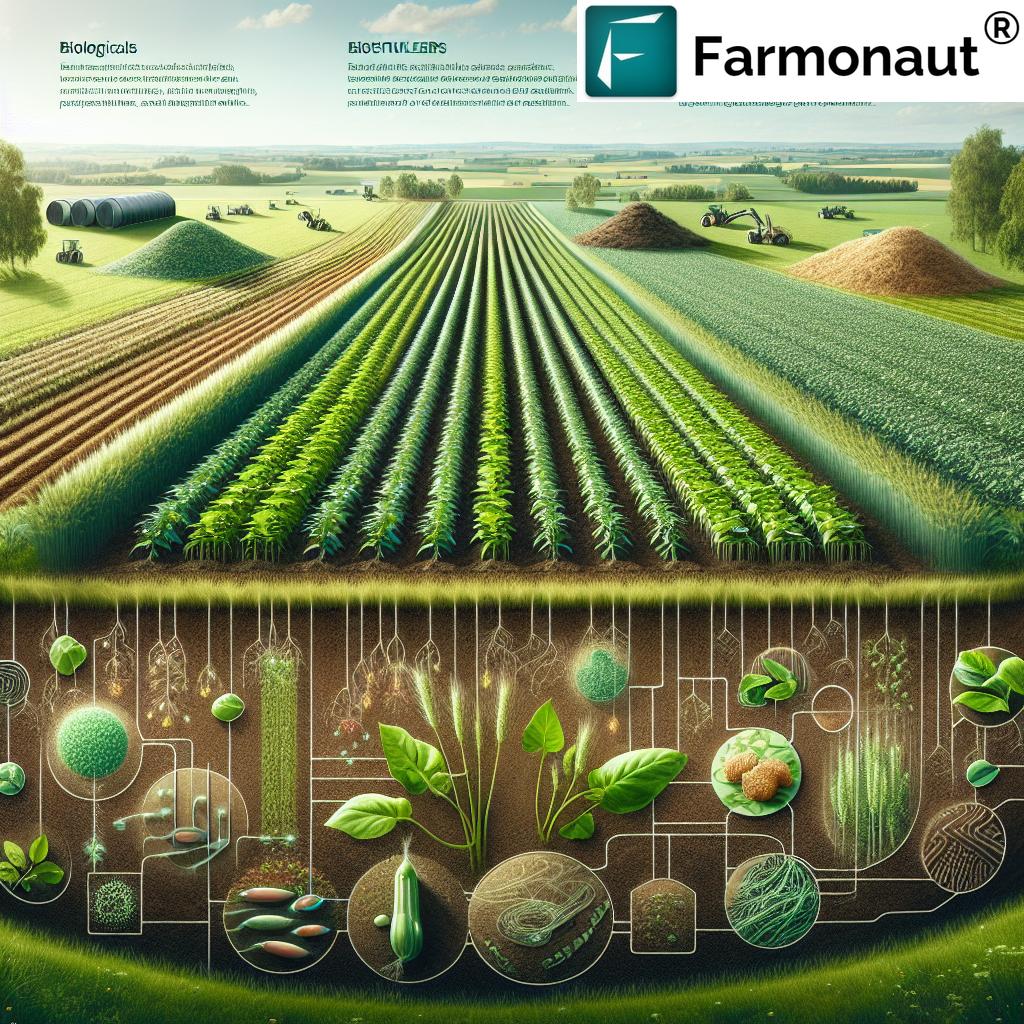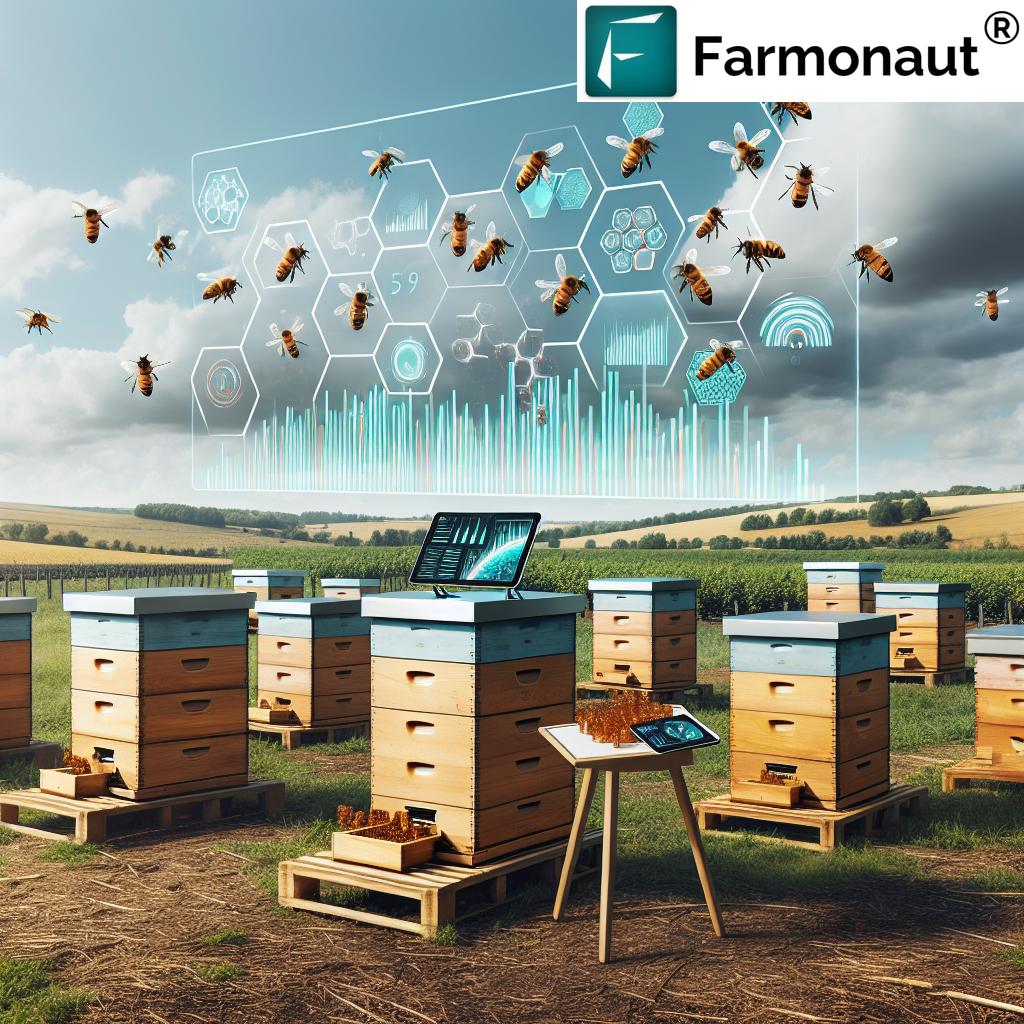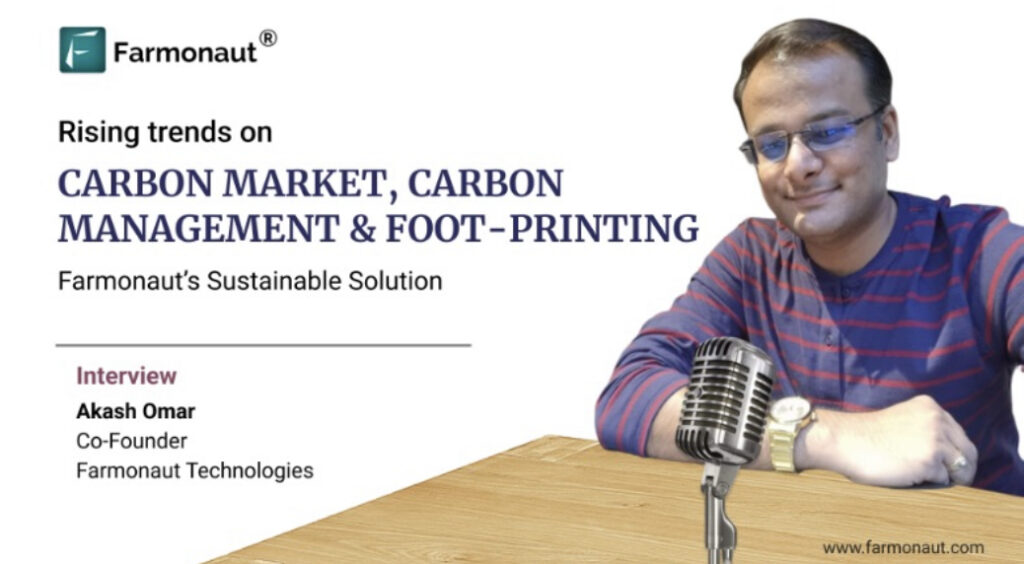
In an era marked by environmental consciousness and responsible business practices, carbon management and footprinting have emerged as essential cornerstones for industries striving to minimize their impact on the planet. As the world turns its attention to mitigating climate change, organizations are compelled to not only measure their carbon emissions but also to adopt strategies that significantly reduce their footprint.
In this article, we will learn certain carbon management and footprinting practices from Co-founder of Farmonaut himself, Mr. Akash Omar. We delve into the latest trends, innovations, and best practices that are reshaping the way companies approach their carbon emissions. From the evolving carbon market to cutting-edge technology solutions, we explore how businesses are not just embracing sustainability, but leveraging it as a strategic advantage.
Mr. Akash Omar, being the Co-founder of Farmonaut technologies, what do you think are the ways in which Farmonaut utilizes the trends of Carbon market management and foot-printing to create innovative solutions for sustainable agriculture and carbon management ?
Yeah, on behalf of Farmonaut, I’m excited to share how we manage the trends in carbon market management and footprinting to drive innovation in sustainable agriculture and carbon management. Our commitment to addressing these challenges has been at the core of our mission since day one.
At Farmonaut, we utilize the evolving trends in carbon market management and footprinting to drive innovative solutions for sustainable agriculture and carbon management. Evaluating whether alterations in field management practices enhance or diminish soil organic carbon content is a pivotal step in safeguarding this vital resource. The application of remote sensing technology proves instrumental in this process. Traditional approaches struggle with accurate quantitative and qualitative soil estimations due to inherent variability across sites, even within a single field. In contrast, remote sensing offers a cost-effective and rapid solution. Farmonaut’s app uses the remote sensing technology to construct a Soil Organic Carbon (SOC) image. This image presents a color-coded map depicting the organic matter percentage in the designated field. Regions with over 5% SOC appear as deep green, while areas with less than 1% manifest as red. Furthermore, this technology tracks changes in SOC content over time, yielding invaluable data for farmers. By utilizing remote sensing through Farmonaut, farmers gain precise and timely insights. This empowers them to make informed decisions that lead to enhanced productivity and soil health. Ultimately, this technology revolutionizes the process, ensuring that interventions are strategically applied to optimize agricultural outcomes.
Well, how do you think has the evolution of carbon pricing and trading mechanisms influenced the way Farmonaut approaches their carbon emissions?
So basically, the evolution of carbon pricing and trading mechanisms has had a profound impact on Farmonaut’s approach to managing carbon emissions. These market dynamics have shifted carbon reduction from a mere environmental concern to a strategic business imperative. As co-founder of Farmonaut, I can attest that we’ve adapted by integrating these trends into our core strategies.
With carbon now having a tangible economic value, our platform assists farmers and businesses in accurately measuring and reducing their carbon footprint. We provide data-driven insights that not only align with regulatory requirements but also offer opportunities for participation in carbon trading and offset programs.
Our technology empowers users to align their sustainability goals with financial gains, transforming carbon reduction into a competitive advantage. This evolution drives us to continually enhance our platform. We’ve refined our analytics to ensure compatibility with emerging reporting standards and trading requirements. By staying ahead of carbon market developments, we enable our users to navigate this new landscape seamlessly, unlocking the potential for both environmental stewardship and enhanced profitability.
Could you share a specific client experience where Farmonaut's carbon management and footprinting solutions made a tangible impact on their sustainability journey? How did our platform assist them in overcoming challenges and achieving their carbon reduction goals?"
Yes, sure. I’d be delighted to provide you with insights into our experience with the Netherland based clients. Through advanced remote sensing and data analytics, we provided the necessary tools to quantify and enhance soil organic carbon levels within their agricultural supply chain. Our platform enabled them to monitor soil health indicators, such as organic matter content and carbon sequestration rates, at a granular level.
Our platform enabled them to pinpoint carbon hotspots, optimize transportation routes, and select eco-friendly materials. By offering real-time insights and actionable recommendations, we empowered our Netherland based client to implement targeted soil management practices that enriched soil organic carbon content. This contributed to carbon sequestration and overall sustainability objectives. Through our partnership, we demonstrated how technological innovation, when integrated with sustainable fashion, can have a positive ripple effect on agricultural practices and environmental conservation. Through continuous monitoring, Our client experienced a remarkable reduction in their carbon footprint, enhancing their environmental stewardship while bolstering their brand’s commitment to sustainability.
That's really great. How do you see carbon footprinting evolving in the agriculture sector, and how does Farmonaut plan to stay ahead in integrating these advancements?
Indeed to be specific, in the agriculture sector, the evolution of carbon footprinting is set to become more precise, comprehensive, and actionable. As a co-founder of Farmonaut, I believe that carbon footprinting will increasingly move from aggregate measurements to field-specific data.
Advanced technologies such as IoT devices, hyper-localized sensors, and AI-driven analysis will allow for real-time, accurate tracking of emissions. At Farmonaut, we’re committed to staying ahead in integrating these advancements. Our platform will continually embrace emerging technologies to offer farmers precise insights into their carbon emissions at the field level. We’ll leverage remote sensing, AI algorithms, and big data analytics to provide granular data on carbon hotspots, emission sources, and mitigation opportunities. By staying at the forefront of these innovations,
Farmonaut aims to empower farmers with actionable data that drives efficient and sustainable practices. Our focus on adaptable, data-driven solutions positions us to lead in the evolution of carbon footprinting, supporting both agricultural productivity and global carbon reduction efforts.
Could you elaborate on how your platform helps companies set and monitor carbon reduction targets? What metrics and key performance indicators are commonly used?
Certainly, at Farmonaut, our platform plays a pivotal role in assisting companies to establish and track their carbon reduction targets. We provide a comprehensive approach that starts with a thorough assessment of their current carbon emissions across various agricultural activities. By leveraging remote sensing technology, satellite imagery, and advanced data analytics, we offer accurate baseline measurements.
With these insights, we collaborate with companies to set realistic and impactful carbon reduction targets. We tailor sustainability plans based on their operations, incorporating strategies that maximize efficiency and minimize emissions. Our platform then becomes an ongoing monitoring tool, providing real-time data on key performance indicators such as greenhouse gas emissions per unit of output, energy consumption, and resource use. Common metrics include emissions intensity, carbon sequestration rates, and energy efficiency gains. Through regular data updates, we enable companies to track their progress, make informed decisions, and ensure they are on course to meet their carbon reduction goals. Our focus is on providing actionable insights that empower companies to achieve meaningful, measurable, and sustainable carbon reduction outcomes.
What challenges have you observed companies facing when transitioning to more sustainable practices, and how does Farmonaut assist in overcoming these challenges?
In our journey at Farmonaut, we’ve identified several challenges that companies commonly face when transitioning to more sustainable practices. These include initial investment costs, uncertainty about the efficacy of new practices, and the need for specialized knowledge. As co-founder, I’m proud to share how Farmonaut addresses these challenges head-on.
Firstly, our platform provides data-backed evidence of the long-term benefits of sustainable practices. By quantifying the environmental and economic advantages, we help companies overcome the perceived high initial costs, making the transition more financially feasible.
Secondly, the uncertainty around new practices is mitigated by our tailored solutions. We offer insights based on data-driven analysis, ensuring that the recommended practices are aligned with the specific needs and circumstances of each company. This personalized approach builds confidence in the effectiveness of sustainable strategies. Lastly, Farmonaut offers educational resources, expert guidance, and best practice recommendations. We bridge the knowledge gap by providing actionable information in a user-friendly format.
Our goal is to empower companies with the insights and tools needed to navigate the transition smoothly, driving sustainable change and fostering a more resilient future.
How Farmonaut can help carbon management companies in their footprints and sequestration project should also be there ?
At Farmonaut, our commitment to assisting carbon management companies in their footprints and sequestration projects is unwavering. Our comprehensive platform uses top-notch technology to provide multifaceted solutions.
For carbon footprint management, we offer real-time, data-driven insights into emissions across the supply chain. Our platform enables companies to accurately measure and monitor their carbon footprints, identifying key sources and hotspots. This information is vital in making informed decisions to optimize operations for reduced emissions.
Regarding sequestration projects, particularly focusing on soil organic carbon, our platform becomes a dynamic ally. We leverage remote sensing to assess soil health indicators, including organic matter content. By facilitating precise monitoring of changes in soil organic carbon over time, we empower companies to validate the effectiveness of their sequestration efforts.
Farmonaut’s role extends beyond data provision – we provide actionable recommendations. For instance, we guide companies in implementing regenerative agricultural practices that naturally enhance soil organic carbon levels. Through our technology, carbon management companies gain a holistic view of their operations, driving them toward tangible sustainability goals.
Finally, with the rapid pace of technological advancements, how do you ensure that Farmonaut's solutions remain adaptable and up-to-date in the face of new developments in the carbon market and sustainability sector?
Embracing technological advancements is intrinsic to Farmonaut’s ethos. As co-founder, I’m committed to ensuring our solutions remain adaptable and at the cutting edge. We operate with an agile development approach that emphasizes continuous research and innovation.
We maintain a dedicated team of experts who stay attuned to emerging technologies, trends, and shifts in the carbon market and sustainability sector. Regular market analysis and collaboration with industry leaders keep us informed and ready to integrate the latest innovations seamlessly. Furthermore, our platform architecture is designed for flexibility and scalability. This enables us to swiftly integrate new data sources, analysis techniques, and reporting standards. By fostering a culture of learning and adaptation, we’re able to evolve in tandem with advancements, ensuring that Farmonaut’s solutions remain not just up-to-date, but ahead of the curve, delivering maximum value to our users and contributing effectively to global carbon reduction efforts.



